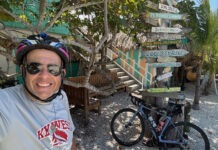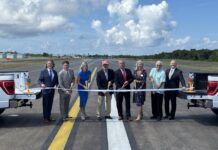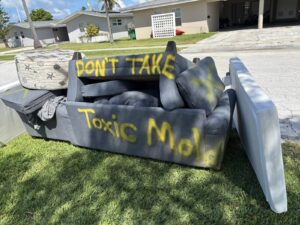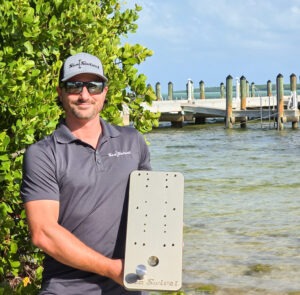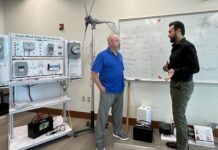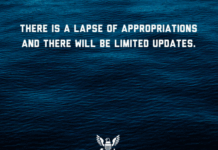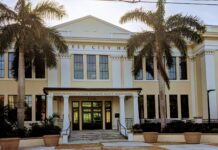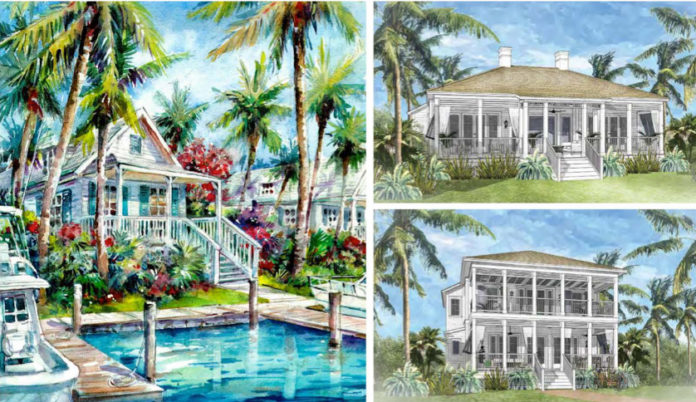
The Valhalla Island Resort passed the City of Marathon’s approval process with flying colors on June 8. At the Marathon City Council meeting, the board unanimously approved the development plan for Crawl Key (between Marathon and Grassy Key) after a lengthy presentation by Johnny Morris’ Floridian Holdings company. Morris is the founder of Bass Pro Shops, which also owns Cabela’s sporting stores and some resorts in the Midwest.
“Johnny Morris grew up fishing in the Middle Keys. His folks had a place on 7th Street in Key Colony Beach. He and his children have fished here, and soon his grandchildren will fish here,” Bob Ziehmer told the Marathon City Council. Ziehmer is the senior director of conservation for Bass Pro Shops and lead director of the Johnny Morris Foundation.
The 110-unit development, when complete, will be among the largest resorts in the Florida Keys and has been in the works for more than 15 years. Property records show that Floridian Holdings LLC bought up most of the properties where the resort is planned in 2005. At the time, there were a handful of houses accessible by Banana Boulevard off Overseas Highway. Now only one of those parcels is privately owned by someone else.
The council asked only a few questions of the development team: protection for the homeowners mentioned above, whose home will be surrounded by resort amenities; affordable housing for its employees; and the locals’ love for the oceanside sandbar that fronts the site of Valhalla Resort.
Amadeo D’Ascanio and David Daniels, private citizens with no relation to the developers, spoke in support of the project and reminded the council of previous lost opportunities.
“If memory serves, Johnny Morris intended to build World Wide Sportsman in Marathon, but Monroe County denied the zoning change needed,” said D’Ascanio, of a time before Marathon incorporated into a city, “and so it was built in Islamorada. Let’s not make this mistake again.”
Daniels also remembered. “Yes, it was back in 1977,” he said, also voicing his support for the development. “In fact, I think we should hold all developers to the same standard.”
Bass Pro’s holdings include two Johnny Morris Signature Resorts in the Midwest that are billed as nature conservation destination resorts. Indeed, the plans for Crawl Key are very conservation-minded and high tech.
The resort parcel is 66 acres on Crawl Key, at MM 57. The developers will build the resort on just 26 acres, leaving the rest of the area in its natural state. The plans call for 29 standard hotel rooms in the proposed lodge, and the rest split among 50 villas, cottages and homes. The resort has eight different stand-alone unit configurations ranging from studios with 379 square feet of interior space to two-story homes with four bedrooms and four baths of 3,700 square feet. All of the models have at least one porch and most have an outside shower. The different models are scattered throughout the resort, so as not to have clusters of large homes stacked together, but a range of options side by side.
The development will have its own sewer system and will build its own infrastructure to include guest parking shaded with solar panels. Guests will move around the resort on golf carts, traversing permeable paving.
“We are using a carbon neutral toolbox to promote conservation, renewables and offsets,” said an engineer for the project. “We are going to pour some tech into this thing to make sure our systems don’t consume energy.”
The resort plans call for a 12,000-square-foot spa that includes retail space, a hair salon, jacuzzi, steam rooms, saunas and “cold pools.” There is also a women’s locker room and men’s lounge. The one-story building is a courtyard design, with a long pool in the center.
The proposed lodge is three stories tall with 29 rooms. It’s a 30,000-square-foot space, which also includes a 1,000-square-foot service yard. In addition, there’s a plan for a fitness building to occupy 3,400 square feet with space for free weights and cardio.
Marathon Councilman John Bartus was the first to ask about employee housing. According to documents from the city’s planning department, the developer has already bought multiple mom-and-pop hotels to convert to workforce housing. The city requires lodging developments to provide employee housing equal to 20% of the approved floor area in rooms for guests.
Bart Smith, a Key West attorney representing Floridian Holdings, said the developer plans to arrange for the workforce housing first, in order to house the construction workers who will build the resort. He also said the resort will be offering a shuttle service for employees, not only to and from work, but also to the grocery store and possibly the mainland for workers who live there.
The hotel room building rights from the small mom-and-pop hotels — which will become workforce housing — have been transferred to the resort. That’s an important distinction for Mayor Luis Gonzalez.
“The developer has already transferred the 100 rights to the resort? These are not new building rights, they have been purchased from motels and hotels already in place in this town?” asked Gonzalez. “I don’t want people to think we have created new building rights for this hotel, that we have bags of units to hand out.”
Because the Keys are a state Area of Critical Concern, almost no new hotel rights have been awarded to the city since the late ’80s, to slow new development and encourage redevelopment with the aim of protecting the environment.
Vice Mayor Mark Senmartin brought up the popular oceanside locals sandbar in front of where the resort will be built.
“We’re not talking about ‘some’ boaters on the sandbar, just one or two off the resort beach,” he told Smith. “And the reason I bring it up is that’s because it’s located past your bay bottom, past your control. The city isn’t going to put up no parking zones on the sandbar, or make special accommodations for the resort.”
Smith said he understood the sandbar is within the jurisdiction of the sheriff and Coast Guard.
“Our whole goal is peaceful coexistence,” Smith said, “the idea is that we should all be able to enjoy it.”
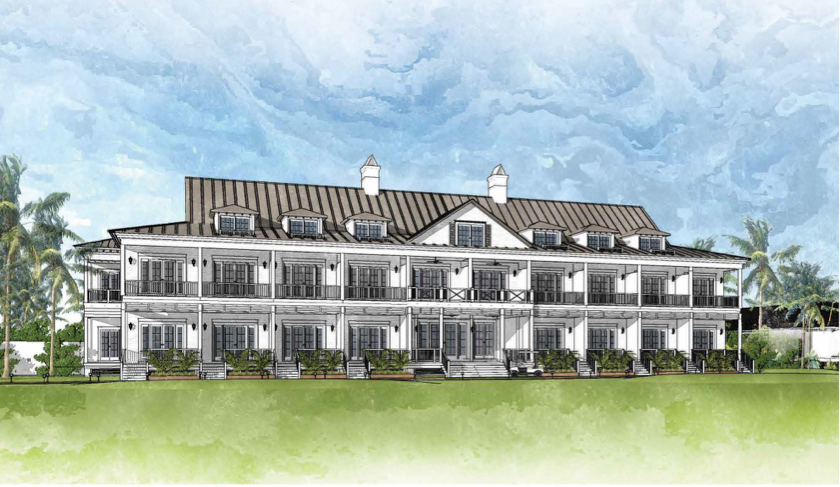
Valhalla Resort has one interesting quirk. The resort will be built around an existing, privately owned home referred to in the presentation as the “outparcel.” The homeowners attended the council meeting and were represented by Tavernier attorney James Lupino.
“That ‘outparcel’ is actually a home. Conditions have to be met to protect these people and their continuous, quiet enjoyment of the property they intend to live in for the rest of their lives. They nailed those boards, they built the house,” Lupino said. Resort plans call for the home to be bordered on one side by tennis courts and across from a nature trail. Lupino told the council that the agreement between the homeowners and the resort developer is mostly complete, but that no legal documents have been signed to ensure the homeowners have uninterrupted utilities, protection from noise and light intrusion, and access to their home for themselves and their guests.
“I am asking you to vote on this project, with the contingency that this issue needs to be resolved,” Lupino said.
The council expressed support for the homeowners’ situation and promptly voted unanimously in favor of the resort by passing two resolutions annulling the city’s existing plat and roadways for the resort site and the conditional use and development agreement, and two zoning and flood map changes.
The zoning changes were the sticking point for the Marathon Planning Commission that met at the end of April and denied the project 4-1. The City of Marathon’s Planning Board only makes recommendations; the final authority rests with the Marathon City Council. The planning commission’s rejection was mentioned several times during the regular council meeting on June 9, and Planning Director Brian Shea assured the elected council that the resort has the support of staff.
With the council’s vote, the zoning was changed from conservation to mixed use on both the zoning and Future Land Use Map (FLUM) maps for only the front portion of the project near U.S.1. The city staff noted that the conservation area had been “disturbed,” meaning it has previously been cleared and/or filled. Most likely the disturbance has to do with its proximity to Overseas Highway and Banana Boulevard. The rest of the property — where the villas and lodge will go — is already properly zoned.
Now, with the council’s approval, the resort’s “operations” will be located on the 4.8-acre rezoned parcel next to Overseas Highway. That will include guest check-in, guest parking, utilities and space for functions like housekeeping and other services.
Morris founded Bass Pro in 1971 in Springfield, Missouri. Currently, the company’s holdings include Bass Pro Shops and its flagship shop known as Outdoor World. In 2017, Bass Pro bought Cabela’s, another outdoor retailer, for $5.5 billion. Forbes estimates Morris’ net worth at about $4.1 billion. His company runs about 17o retail shops — including Bass Pro shops and Cabela’s — in the U.S. and Canada.
Bass Pro’s holdings also include two resorts and a nature preservation area, also in Missouri. Big Cedar Lodge and the Lodge at Top of the Rock were built within the past decade. Bass Pro Shops also owns White River Marine Group, which manufactures and distributes boats under nine brand names, including Mako, which is popular in Florida. Bass Pro also owns the Dogwood Canyon Nature Park, where guests pay admission to enjoy daily adventures.


